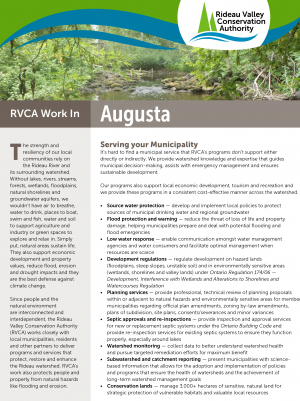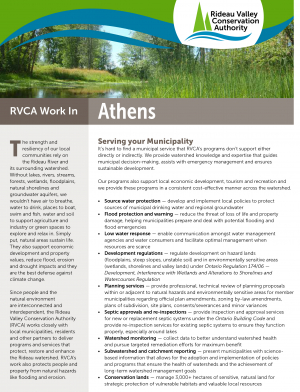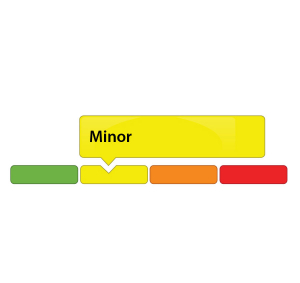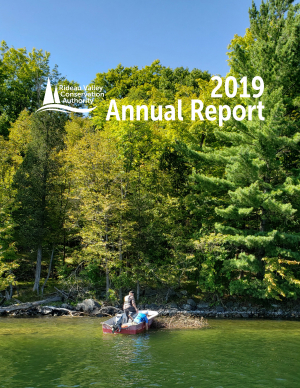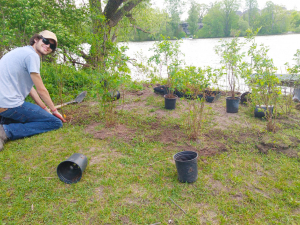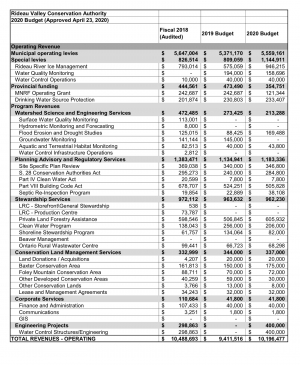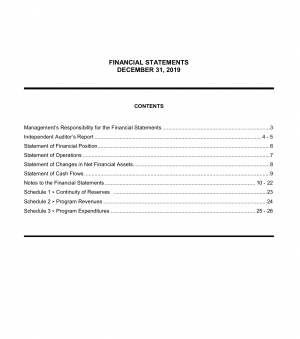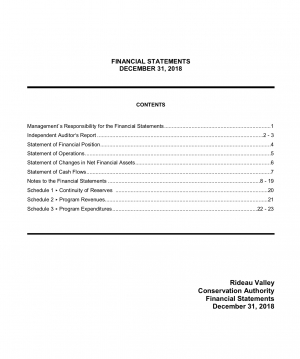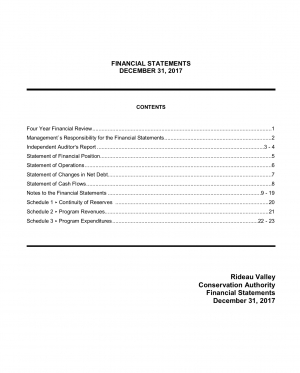Super User
Augusta Municipal Information Sheet
Athens - Municipal Information Sheet
Minor Low Water Conditions in Rideau Valley Watershed
June 4, 2020 – Due to below average rainfall in April and May, conditions in the Rideau Valley Watershed now meet the threshold for Minor Low Water status under the Ontario Low Water Response Program. Watershed residents and businesses are encouraged to conserve water during dry conditions.
Although stream flow values are not currently below any of the low water thresholds, the stream flow values are lower than normal by as much as 30 to 50 percent and field observations indicate that ecological conditions are becoming stressed. The average 90-day rainfall measured at climate stations in and around the watershed is just shy of 80 per cent of normal for this time of year, which is a key indicator for Minor Low Water status. In the past 30 days, average rainfall is slightly below 50 per cent of normal. Looking ahead, the seven-day weather forecast suggests we will continue to receive minimal precipitation.
Following an early spring freshet this year, Parks Canada are closely monitoring the water levels throughout the Rideau Canal system inside the Rideau Valley watershed. Water levels in the reservoir lakes are currently close to normal but are expected to decline with little precipitation in the short-term forecast. Rideau River flows downstream of Big Rideau Lake have been reduced to minimum. Water levels in the Rideau River below Smiths Falls are within navigable ranges.
Conservation Authority staff continue to monitor conditions and communicate with water managers throughout the watershed. Updates to this message will be issued as conditions warrant.
-end-
"Rideau Valley Conservation Authority is a partnership of municipalities within the Rideau Valley watershed created under the Conservation Authorities Act to deliver a range of programs in watershed management and natural resource conservation."
100,000 Shoreline Plants!
OTTAWA, May 29, 2020 — RVCA’s Shoreline Naturalization Program has reached a milestone — this spring they planted their 100,000th shoreline plant.
The Shoreline Naturalization Program was established in 2009 to help shoreline landowners and groups create natural, resilient shoreline buffers that protect property from erosion, provide critical wildlife habitat and, improve water quality. The program is geared to waterfront landowners who have wetlands, streams, rivers, and lakes within the Rideau Valley watershed. Lake associations, not-for-profits, and stream/creek/river groups are eligible as well.
‘It's been great seeing the program grow over the years. More and more people realize the importance of maintaining natural shoreline buffers. It shows every year with the number of calls we get,” says Meaghan McDonald, RVCA’s Lake Planning/Shoreline Stewardship Coordinator.
There are a lot of benefits to naturalizing your shoreline. Shoreline plants filter runoff that contains pollutants such as fertilizers, soil, road salt, vehicle fluids, pet waste and septic leachate. They improve wildlife habitat by providing food, safe travel areas and places to live. They provide shade over the water, which creates habitat and resting areas for fish. Shade cools water temperatures, which is good for many fish species. These plants are key to erosion protection. They slow erosion processes down by trapping soil in place. They control runoff. Too many soil particles in the water can be problematic for aquatic wildlife by reducing clarity, burying fish spawning grounds, clogging fish gills and limiting aquatic plant growth. A buffer of shoreline plants means less work maintaining your waterfront. All you need to do is prune to maintain your wonderful, water views. Shoreline vegetation also helps with flood abatement. The plants slow down surface water runoff and absorb it into the ground.
You can learn more about the program or sign up for a free site visit at https://www.rvca.ca/stewardship-grants/shoreline-naturalization/shoreline-naturalization-program. You will get a free site visit to discuss your individual needs. And, the program will provide you with a custom planting plan tailored to your property's specifications. And, the cost of shoreline plants is subsidized.
It’s a win-win situation — you get beautiful shoreline plantings that enhance your property and the environment benefits too.
-end-
For more information, please contact:
Meaghan McDonald
Lake Planning / Shoreline Stewardship Coordinator
Rideau Valley Conservation Authority
613-692-3571 ext. 1192
